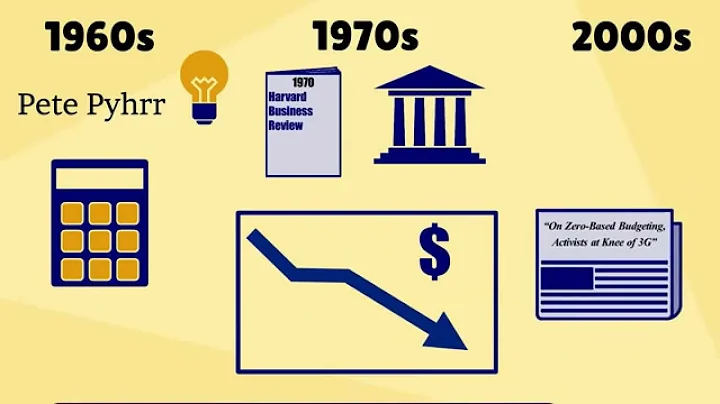Zero based budgeting in higher education?
Zero-based budgeting clears the previous budget every year and each institutional unit reapplies for funding. This means that units or departments must continually justify their funding requests year over year.
The premise of ZBB is that each individual budget in the district is built from scratch; forcing decision leaders and budget owners to justify their existing and new spending according to district criteria.
The six types of budget models most commonly used in higher education are: Incremental Budgeting model, Zero-Based Budget Model, Activity-Based Budgeting Model, Responsibility Center Management Model, Centralized Budgeting Model, and the Performance-Based Budgeting Model.
Responsibility Center Management (RCM) is a budgeting model under which revenue-generating units are wholly responsible for managing their own revenues and expenditures.
Zero-based budgeting vs.
This communicates the financial targets across the organization in every line of business. The targets can be financial and operationally aligned. Some examples of this are revenue and expense budgets, R&D costs, marketing expenses, project costs and revenues, and capital expenditures.
There are many types of budgeting models, and the zero-based budgeting (ZBB) approach is aligned with service-level entities, such as schools, where the provision of service is paramount. ZBB is a management tool used to control costs in an organization.
The disadvantages of zero-based budgeting include the possibilities of resource intensiveness, being manipulated by savvy managers, and bias toward short-term planning.
Why Are Budget Models Important in Higher Education? Budget models are important in higher education because they play a vital role in how colleges and universities carry out their missions. These methods can have direct implications on the short-term and long-term financial health of an institution.
The United States, on average, spent $31,882 per FTES in two- and four-year public postsecondary institutions in 2020. Alaska spent the most, with $47,097 per FTES, followed by Oregon ($46,447), Delaware ($45,405), Vermont ($45,250), and Connecticut ($43,440).
Zero-based budgeting (ZBB) is a budgeting technique in which all expenses must be justified for a new period or year starting from zero, versus starting with the previous budget and adjusting it as needed.
What is the Rutgers budget model?
The Rutgers budget is built using a responsibility centered management (RCM) budget model, which is a decentralized model common in higher education.
Revenue Cycle Management (RCM) refers to the process of identifying, collecting, and managing the practice's revenue from payers based on the services provided. A successful RCM process is essential for a healthcare practice to maintain financial viability and continue to provide quality care for its patients.

Advantages of Zero-Based Budgeting
By scrutinizing each line-item expense from scratch, ZBB helps identify unnecessary or redundant costs, preventing overspending. This process allows for cost-cutting and setting savings goals, leading to lower costs and improved financial efficiency.
For a personal zero-based-budget, here are the steps: 1) Start with your income; 2) Prioritize essentials like rent or mortgage, food, utilities, and transportation expenses; 3) Justify other spending once your essentials are covered, decide which other expenses are a good fit for your lifestyle and financial goals.
The foremost theoretical advantage of ZBB is that it offers a rational and comprehensive means to cut the budget. ZBB can be used to make different cuts to different services based on the perceived value to the organization (rational) and all spending is put under scrutiny (comprehensive).
Key Challenges of the Zero-Based Approach
Time crunch: The time needed to prepare zero-based budgets may increase stress on an already-loaded team. Skill gaps: Accounting and finance department experience may be limited and require additional ramp up time during its first year in use.
Zero-based budgeting is a way to plan how you use each dollar you earn. This budgeting style may give you greater insight into your finances and provides you the flexibility to customize your budget each month. Zero-based budgets require advance planning, particularly for those with inconsistent incomes.
ZBB was officially eliminated in federal budgeting on August 7, 1981. "Some participants in the budget process, as well as other observers, attributed certain program efficiencies, arising from the consideration of alternatives, to ZBB.
Pro: Zero-based budgeting can help you trim unnecessary splurges. “This method works well for those who may have tight budgets or really need to cut down on spending because you must keep a close eye on all of your spending,” says Clayborne.
Under PBS, planning and budgeting are formal activities requiring the active participation of administrators, faculty, staff, and students within the shared governance structure of the University.
How much does the US government spend on universities?
UC Core Funding Is $10.3 Billion in 2021‑22.
Ongoing General Fund spending increases by $546 million (16 percent) from 2020‑21 Budget Act levels. The 2021‑22 budget also includes $743 million in total one-time spending for various initiatives at UC. Figure 6 shows the many specific spending changes for UC in 2021‑22.
Ultimately, persistent inflation, rising administrative costs and reduced state funding for higher education keep college costs high– and they continue rising.
Adjusted for population, the states with the largest per capita spending for higher education in FY 2023 were Wyoming ($606), Hawaii ($586) and New Mexico ($575). The states with the lowest per capita funding were New Hampshire ($106), Pennsylvania ($153), and Arizona ($186). The national average was $318.
Norway reported the highest total expenditures on education institutions as a percentage of GDP (6.6 percent), followed by Chile (6.5 percent), Israel (6.2 percent), Australia (6.1 percent), and the United Kingdom and the United States (both 6.0 percent).
Zero Based Budgeting Disadvantages
The extra training required (including using any new software, workflows, etc.), along with the fact that each budget is built from scratch rather than relying on the (quicker and easier) data from last year can add significant expense when making the change.